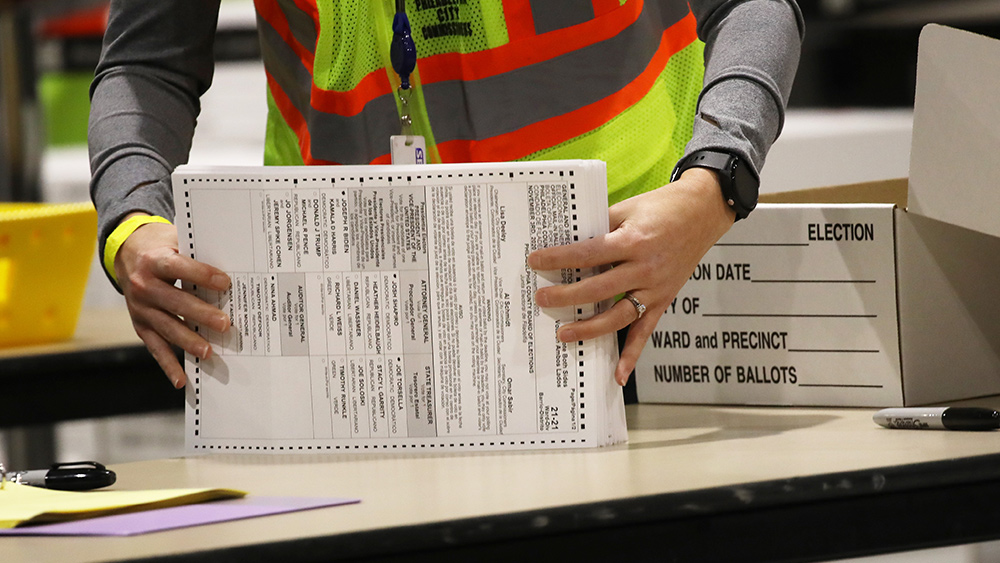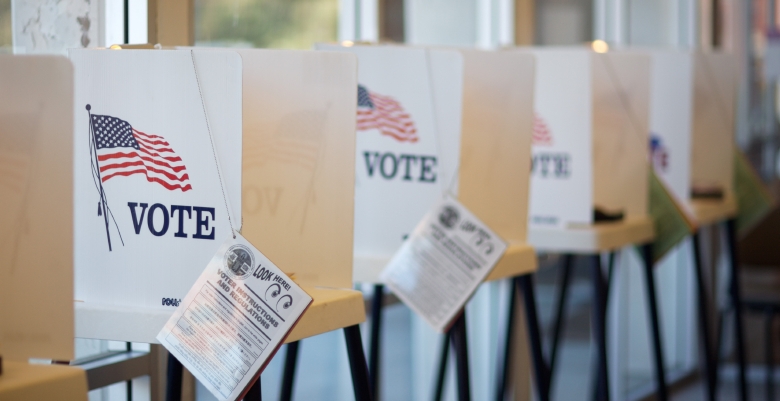
A Pennsylvania court has ruled that election officials cannot reject mail-in ballots with incorrect or missing dates as long as they were submitted before the filing deadline.
The American Civil Liberties Union (ACLU) recently filed a lawsuit against Pennsylvania Secretary of State Al Schmidt, the Philadelphia County Board of Elections and the Allegheny County Board of Elections to challenge Act 77 of 2019, which mandated that voters with mail-in ballots have to properly date the envelopes containing their votes. The ACLU argued that such provisions are unconstitutional. (Related: Big win for election integrity in PA as court confirms improper absentee ballots won't be counted.)
In line with this, the panel of the Commonwealth Court, a state appeals court, ruled on Aug. 30 that Act 77 of 2019 violates the Pennsylvania Constitution. The ruling comes after evidence showed that more than 10,000 mail-in ballots were not counted in the 2022 midterm election and 4,000 were rejected in April during the state's primary elections due to the proper dating requirements.
"Simply put, the refusal to count undated or incorrectly dated but timely received mail ballots submitted by otherwise eligible voters because of meaningless and inconsequential paperwork errors violates the fundamental right to vote recognized in and guaranteed by the free and equal elections clause of the Pennsylvania Constitution," Commonwealth Court Judge Ellen Ceisler wrote for the 4-1 majority.
The majority declined to rule against other provisions but determined that the date requirement is unconstitutional. However, the appeals court clarified that officials still have the authority to ensure mail-in ballots meet other requirements, such as submission deadlines.
The ruling applies to Philadelphia and Allegheny counties. The Pennsylvania Department of State has not yet indicated how this ruling will affect its guidance to counties for future elections.
Ruling receives mixed reactions
Gov. Josh Shapiro praised the decision, stating that a minor error like forgetting or misdating a ballot envelope should not result in a voter being disenfranchised.
The Pennsylvania State Department also stated that "multiple court cases have now confirmed that the dating of a mail-in ballot envelope, when election officials can already confirm it was sent and received within the legal voting window, provides no purpose to election administration."
However, Commonwealth Court Judge Patricia McCullough, the lone dissenting voice, argued that the date requirement was the least burdensome of all ballot-casting requirements and that its removal could set a concerning precedent for election law.
"It seems to me that the majority was swayed by the raw numbers and avoided applying the true test for evaluating a Free and Equal Elections Clause claim," she wrote. "Today the majority says that requiring the date on the voter declaration on a mail-in or absentee ballot envelope is subject to strict judicial scrutiny and cannot be enforced because doing so unconstitutionally denies the voting franchise altogether. I must wonder whether walking into a polling place, signing your name, licking an envelope, or going to the mailbox can now withstand the majority's newly minted standard."
The Pennsylvania Republican Party and the Republican National Committee, which intervened in the case, expressed their intention to appeal.
Follow VoteFraud.news for more news about election fraud using mail-in ballots.
Watch this video explaining how mail-in ballots are a win for Democrats.
This video is from the UAF Network channel on Brighteon.com.
More related stories:
Texas PURGES one million ineligible voters from voter rolls, including non-citizens and dead people.
Sources include:
BigLeaguePolitics.Substack.com
Please contact us for more information.




















